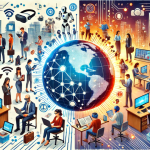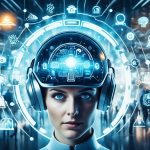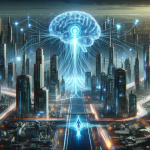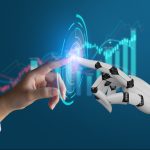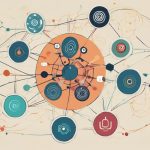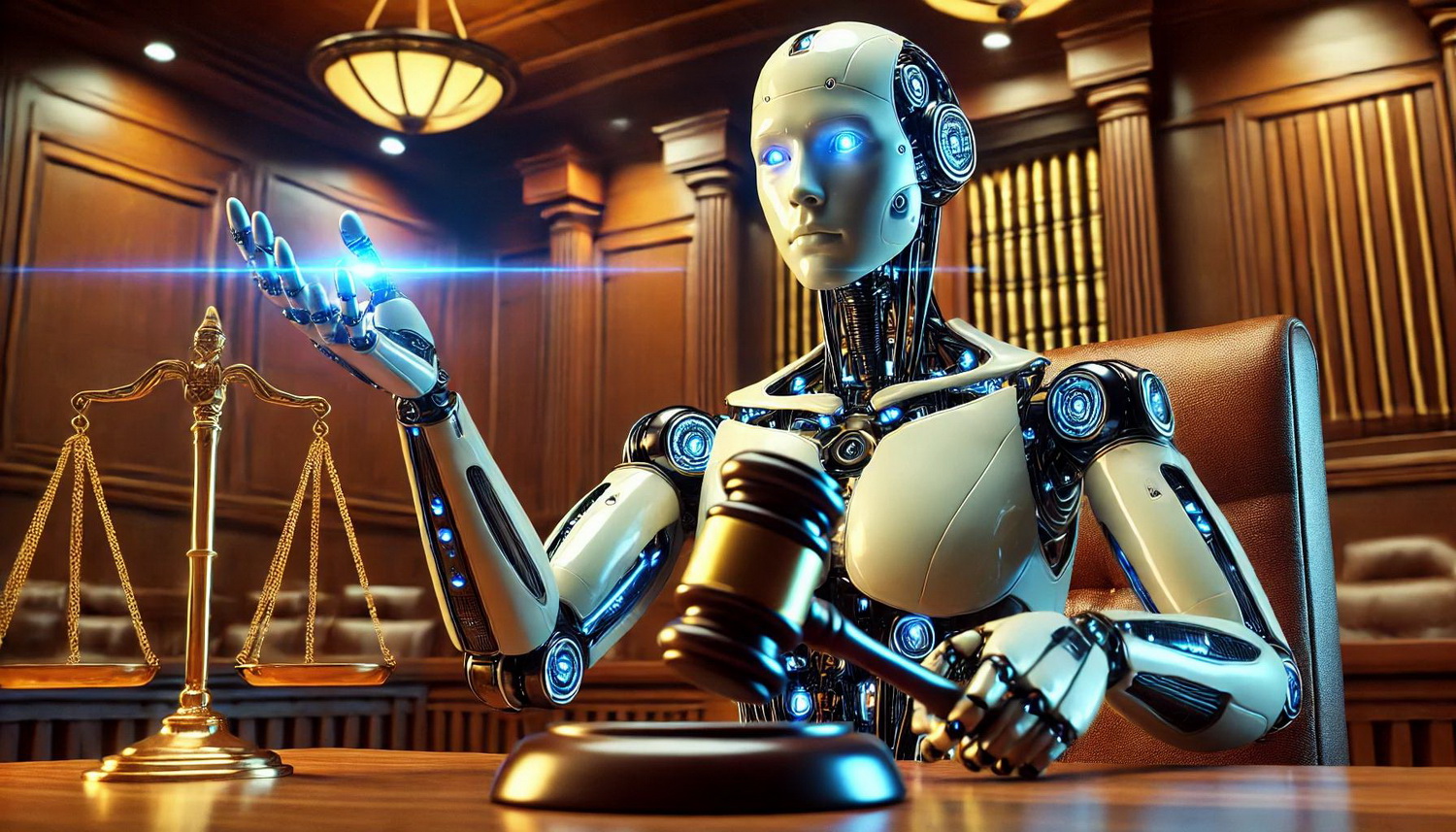Introduction
The 21st century has entered a new renaissance—one defined not by art and literature, but by data, artificial intelligence, and global influence. As the world becomes increasingly digital, technology has reshaped every layer of modern life, from how leaders govern to how celebrities inspire action.
This transformation is more than technological—it is cultural and political. The digital age has blurred the lines between entertainment, governance, and innovation, creating a society where fame, data, and diplomacy converge in unexpected ways.
Artificial Intelligence and the New Global Order
Artificial intelligence has become the most powerful force shaping the geopolitical landscape. Nations are racing to develop AI systems that can predict economic trends, optimize national security, and automate industries at unprecedented scales.
Countries like China and the United States now compete for dominance in AI-driven defense, cyber infrastructure, and economic forecasting. This digital arms race is creating new alliances and tensions, redefining global power for the next generation.
Celebrity Voices in a Digital Age
Celebrities have evolved from entertainers into influential advocates for global change. Figures like Taylor Swift, Leonardo DiCaprio, and Elon Musk now influence environmental, social, and technological discourse through their immense digital followings.
This cultural evolution demonstrates the growing power of celebrity platforms in shaping public awareness. When fame aligns with purpose, it becomes a catalyst for collective consciousness—bridging the gap between entertainment and activism.
Politics in the Age of Social Media Influence
Governments now operate in a digital environment where public perception can shift with a single viral post. Political leaders use social media to bypass traditional news outlets, creating direct connections with citizens while controlling their narratives.
However, this approach also brings risks. Misinformation, algorithmic bias, and polarization have become major threats to democratic stability, forcing nations to balance free expression with the responsibility of truth.
The Economic Power of Tech Giants
Tech corporations have emerged as the new global superpowers, wielding more influence than many governments. Companies like Google, Amazon, and Meta control massive data networks that shape global trade, communication, and cultural identity.
Their decisions affect millions of jobs, information access, and even election outcomes. As these firms expand their reach, the call for stronger regulation and corporate accountability grows louder across nations.
The Role of Digital Diplomacy
Diplomacy in the modern world no longer happens solely in embassies and conference rooms. Governments are using digital platforms to engage in real-time negotiations, crisis management, and global awareness campaigns.
From climate summits to humanitarian efforts, digital diplomacy allows leaders to reach wider audiences instantly. Yet, it also requires careful balance, as online miscommunication or data breaches can have far-reaching political consequences.
Artificial Intelligence and Creative Innovation
AI is not just transforming economies—it’s reshaping creativity itself. In art, music, and film, algorithms assist in generating new ideas, simulating emotion, and redefining storytelling.
This collaboration between humans and machines has sparked debates about authenticity and ownership. As AI becomes a creative partner, society must redefine what it means to be an artist in a world where code can paint and compose.
The Global Quest for Digital Ethics
As technology evolves, ethical considerations have become central to global governance. Nations are now drafting AI ethics frameworks to protect human rights, prevent bias, and promote transparency.
Public awareness around data privacy and algorithmic control has pushed lawmakers to hold corporations accountable. The success of this movement will determine whether the future digital order remains fair, inclusive, and democratic.
FAQs
How is artificial intelligence influencing global politics?
AI helps governments forecast trends, manage resources, and strengthen defense, creating new centers of global power.
What role do celebrities play in digital transformation?
Celebrities use their influence to advocate for environmental, social, and technological progress, shaping public opinion worldwide.
Why are tech corporations compared to global powers?
Their control over data, communication, and digital infrastructure gives them political and economic influence similar to entire nations.
What is digital diplomacy?
It’s the use of digital platforms by governments to communicate policy, collaborate internationally, and address global issues.
Can AI replace human creativity?
AI can enhance and expand creativity, but human emotion, experience, and interpretation remain irreplaceable in artistic expression.
Conclusion
The digital renaissance is redefining humanity’s place in history. With artificial intelligence at its core, society stands on the edge of a new age of knowledge, connectivity, and creativity. This is not merely an evolution of technology—it is an evolution of consciousness.
As politics, culture, and innovation continue to intertwine, the future depends on humanity’s ability to guide digital progress with wisdom and integrity. The choices made today will shape not just the next decade, but the very soul of the connected world to come.


